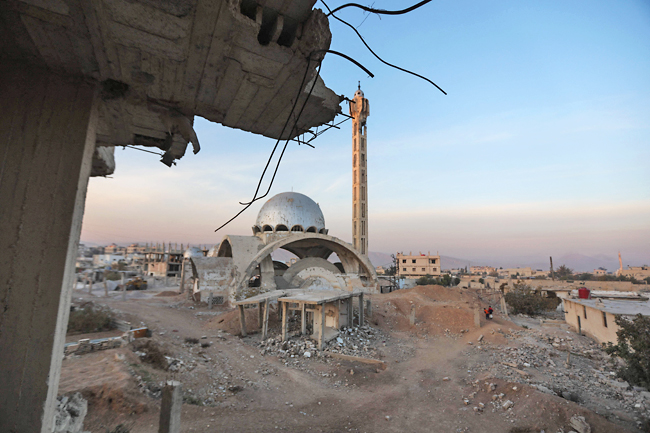DAMASCUS (AFP) – Governments worldwide are stepping up efforts to engage with Syria’s new interim rulers, just over a week after rebels ousted president Bashar al-Assad, ending decades of brutal rule and civil war.
The lightning offensive that captured the capital Damascus on December 8 led to celebrations across the country and beyond.
At Damascus university on Sunday, Yasmin Shehab told AFP that she and fellow students felt “optimistic”.
“We feel liberated, and the chains have been broken,” she said. “Fear has been shattered.”
But the surprise ouster caught many governments by surprise, and has left them scrambling for a new policy.
Hayat Tahrir al-Sham (HTS), the group that led the offensive, is rooted in Al-Qaeda’s Syrian branch, and is still designated a terrorist group by several Western governments.
Diplomats, including United Nations envoy Geir Pedersen who was in Syria on Sunday, have urged an inclusive new administration focused on nation-building and justice.
Pedersen met with HTS chief Ahmed al-Sharaa – previously known as Abu Mohammed al-Jolani – and called for “justice and accountability for crimes”. “We need to make sure that that goes through a credible justice system, and that we don’t see any revenge,” he said.
Both Britain and the United States also confirmed they were in touch with HTS.
“We can have diplomatic contact and so we do have diplomatic contact,” British Foreign Minister David Lammy said as he announced an aid package for Syrians.
A French diplomatic team is also due in Damascus today to “retake possession of our real estate” and make “initial contact” with the new authorities, said acting Foreign Minister Jean-Noel Barrot.



